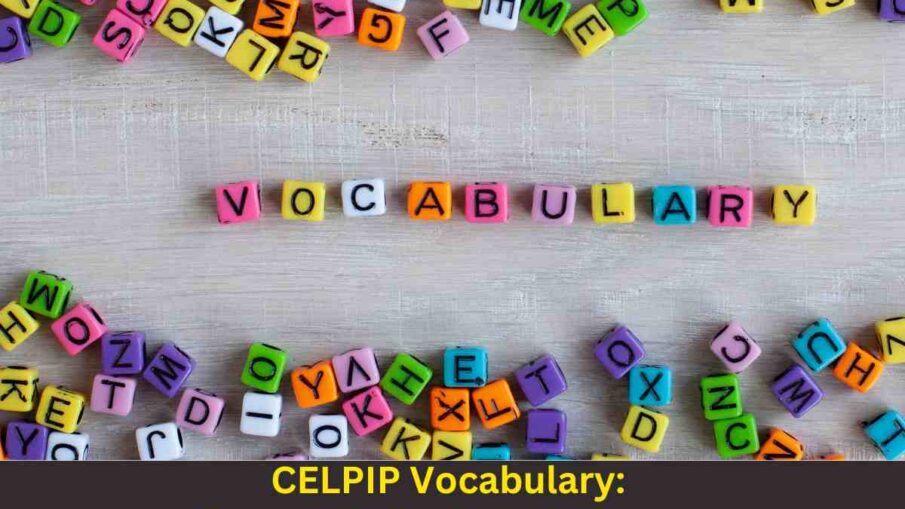CELPIP Vocabulary: Essential Words and Phrases:- Ah, the CELPIP exam! If you’re prepping for it, you already know how essential a strong vocabulary is. But where should you start? Which words are absolutely vital, and what phrases will give you that extra edge? Let’s dive in, shall we?
Introduction to CELPIP Vocabulary
CELPIP, or the Canadian English Language Proficiency Index Program, is a popular English language proficiency test tailored specifically for those looking to live or work in Canada. Like any language proficiency exam, a strong vocabulary foundation can make all the difference.
Why Vocabulary Matters in CELPIP
Importance of a wide vocabulary range
Imagine trying to paint a picture, but you only have three colors. It’s the same with language. The broader your vocabulary, the richer and more detailed your communication becomes. It’s not just about knowing big words; it’s about precisely expressing thoughts, emotions, and information.
The impact on test scores
Having an extensive vocabulary doesn’t just help in the speaking part of the exam. It plays a pivotal role in the listening, reading, and writing sections too. Recognizing words and understanding their meanings can significantly boost your scores.
Essential Words to Know
Common nouns
Words like ‘environment’, ‘society’, ‘technology’, and ‘culture’ frequently pop up in CELPIP. Familiarizing yourself with these can give you a solid starting point.
Frequently used verbs
Verbs like ‘analyze’, ‘demonstrate’, ‘establish’, and ‘influence’ can be invaluable. Not only do they allow you to express actions, but they also add depth to your sentences.
Adjectives to enhance communication
Adjectives such as ‘significant’, ‘relevant’, ‘diverse’, and ‘efficient’ can help you convey your thoughts more vividly.
Must-Know Phrases
Expressing opinions
Phrases like “In my opinion,” “I firmly believe that,” or “From my perspective” can set the tone for your arguments.
Asking questions
“In what way does…?”, “How can we ascertain…?”, or “What leads you to believe…?” can be instrumental in framing inquiries.
Agreeing and disagreeing
While “I agree with the notion that…” can show alignment, “I beg to differ because…” or “That might be true, but…” can be used to introduce contrasting views.
Tips for Enhancing CELPIP Vocabulary
Engaging in daily reading
Ever tried soaking up the sun to get that golden tan? Think of reading as soaking up words. Newspapers, online articles, or even fiction can be a goldmine for vocabulary.
Conversational practice
Engage in conversations, debates, or even casual chit-chat in English. It’s like going to the gym but for your language muscles.
Using mobile apps and online resources
There’s an app for everything these days, isn’t there? Use mobile apps or online platforms tailored for CELPIP preparation. They often come with curated word lists and interactive exercises.
Conclusion: CELPIP Vocabulary: Essential Words and Phrases
Embarking on the CELPIP journey with a fortified vocabulary arsenal can be your secret weapon. Remember, it’s not about cramming every word in the dictionary but understanding and using them effectively. Good luck, and may your vocabulary be ever-expanding!
FAQs: CELPIP Vocabulary: Essential Words and Phrases
- What is the CELPIP exam used for?
- The CELPIP exam is an English proficiency test used for immigration and professional designation in Canada.
- How often should I practice to improve my vocabulary?
- Daily practice, even if for a short duration, can be more beneficial than occasional intense study sessions.
- Are there specific topics the CELPIP exam focuses on?
- While CELPIP covers a range of topics, it often emphasizes themes relevant to Canadian society and values.
- How can I track my vocabulary improvement?
- Maintaining a journal, using flashcards, or leveraging vocabulary-tracking apps can be effective.
- Is vocabulary the only key to scoring well in CELPIP?
- While a strong vocabulary is crucial, other skills like grammar, coherence, and task response are equally important.

Leave a Reply